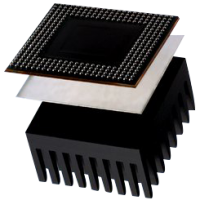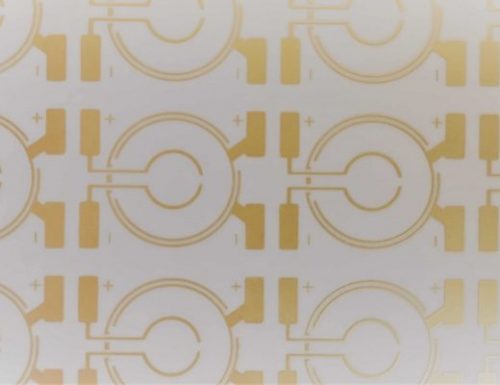UNIQUE & INDEPENDENT SOLUTIONS
— TO DEVELOPING THERMAL PCB MARKETS —
METAL CLAD PCBS
The advantage of using metal clad material for PCB production as opposed to more traditional materials such as FR4 and CEM is down to the efficient removal of heat. The dielectric insulating material in metal clad materials is designed to have a much superior thermal conductivity than that of FR4, Most materials have a conductivity ranging from 1W/m-K to 9W/m-K, allowing for efficient heat removal.

THERMAL INTERFACE MATERIAL (TIM)
The requirement to drive electronic components harder and faster, at higher power, from smaller packages means they are running hotter – and too much heat is a component killer. In the battle to get heat away from electronic components, Thermal Interface Material is a simple but very effective, low cost solution that significantly improves the transfer of heat from component to heat sink.
LED’s, Electric vehicle motor drives, audio systems, automotive lighting, braking and steering systems… these are all examples of applications where TIM is used as part of effective thermal management to ensure reliability, performance and to prevent component failure.
CERAMIC PCBS - SUPERIOR THERMAL MANAGEMENT
Ceramic PCBs have received enormous attention from the industry as an effective solution to a range of electronic issues. The superior Thermal Conductivity of ceramics being the leading reason that more and more industries are turning to ceramics for their PCB design
Heat dissipation is the key advantage that Ceramic has over more conventional materials such as FR4 and Metal Clad PCBs. With components being placed directly on the boards, and no isolation layer, the flow of heat through the boards is far more efficient.
In addition to this, Ceramic material can withstand high operating temperatures (up to 350°C) and has a very low CTE (Coefficient of Thermal Expansion), allowing for additional compatibility options for circuit design.
DK Thermal specialises in Alumina Oxide (Al2O3) and Aluminium Nitride (AlN) using direct bonded copper (DBC) and direct plated copper (DPC) technologies.





